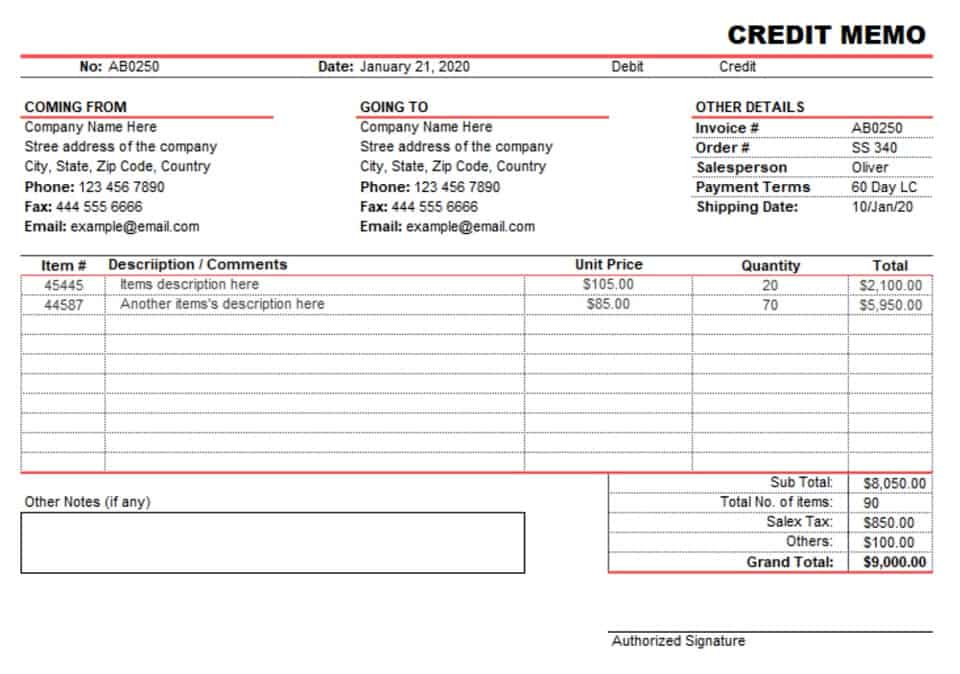Content

A CPA is particularly important to an individual because a CPA can provide advanced taxation services along with financial planning services. They can represent you in front of the IRS if you are audited, which an accountant cannot do.
Unlike some tax preparers who work just several months out of the year, CPAs are fully engaged in interpreting and applying tax law year-round. “An accountant can help you analyze your spending choices and even act as a consultant,” said Stewart.
Comparing Public Accountants to CPAs
To represent a taxpayer, licensed tax professionals must pass the three-part Special Enrollment Examination and complete 72 CPE hours every three years. After completing all requirements, tax preparers are awarded enrolled agent status. Joshua Wiesenfeld is a financial investigator, certified public accountant , and certified fraud examiner with almost a decade of experience. He writes about taxes and investing and has been published in the Journal of Accountancy and Fraud Magazine. Joshua has a master’s of public administration in forensic accounting from John Jay College.
The accountant is the one who does the day-to-day work within a business. In general, knowing how your business is performing, you need an accountant.
Is it easy to pass CPA Exam?
The CPA Exam is so difficult because: It covers a wide range of topics for students of varying ability levels. It assesses those areas using a variety of question formats, including those that mirror real-world tasks that CPAs are required to accomplish.
If you are a public corporation, only a CPA can prepare your audited financial statements. As an individual, you need a CPA for complicated tax returns and to help and represent you if the IRS is auditing you. A CFA and a CPA are both recognized, standardized certifications that can provide a great degree of mobility and flexibility for a career in the financial sector. CPA stands for certified public accountant and can be a helpful designation in particular if you would like to issue audited or reviewed financial statements.
One important function performed by CPAs relates to assurance services. Certified Public Accountant is the title of qualified accountants in numerous countries in the English-speaking world. It is generally equivalent to the title of chartered accountant in other English-speaking countries. In the United States, the CPA is a license to provide accounting services to the public. It is awarded by each of the 50 states for practice in that state. Additionally, all states except Hawaii have passed mobility laws to allow CPAs from other states to practice in their state. They are generally more educated than their peers due to the stringent requirements of the CPA designation.
Reasons Why You Should Get a Business Degree
In the assurance service category CPAs attest financial statements, however, the accountant does have authority to attest financial statements. Bookkeepers are ideal for managing your daily business finances, back-office financial tasks, and data entry. And CPAs offer added expertise, credibility, and in addition to traditional accounting tasks, they can represent the best interest of you and your business in a legal scenario. Along with their extensive knowledge of tax laws and what you can and cannot legally deduct, a CPA can represent you in front of the IRS in the event of an audit. While an accountant can prepare your business tax return, only a CPA can defend that return should the IRS or your state tax authorities have questions or concerns. With the widespread use of accounting software, you don’t need a CPA to run financial statements. However, while you may run the reports, do you understand what they’re telling you?
- Provinces in Canada also allow non-accounting majors and international candidates to meet the requirements if they get into the CPA Prerequisite Education Program .
- The CPA designation is specific to the country in which the exam is taken, though it is a well-known program that is offered in many countries around the world.
- There are no guarantees that working with an adviser will yield positive returns.
- They record sales, payments received, debts, purchases and the like.
- Two-tier states include Alabama, Florida, Illinois, Montana, and Nebraska.
- CPAs are highly respected accounting specialists with additional credentials and expertise compared to regular accountants.
- To earn the CPA license, accounting professionals must have extensive education—at least 150 hours—pass a rigorous four-part exam and meet experience requirements.
They are necessary for public corporations, advanced tax issues, audits and other miscellaneous tasks. You may be wondering if you can just hire a tax accountant instead of a CPA to do your taxes. But while accountants are qualified to prepare tax returns for your business, they don’t have the level of knowledge that CPAs have regarding tax codes. CPAs can also represent you before the IRS should you be audited, something that accountants cannot do. Many CPAs are more knowledgeable in tax codes because of the rigorous CPA licensing examination and continuing education requirements.
What Is An Accountant?
CPAs can prepare tax documents, file tax returns, and strategize ways to minimize your tax liability for the following year. Also, CPAs can represent you if the IRS has questions about your return or if you or your business are audited, which is an important consideration. CPAs are tax experts who can file your business’s taxes, answer important financial questions and potentially save your business money. While CPAs have accounting degrees, their certification differs from traditional accountants. The majority of states still require work experience to be of a public accounting nature, namely two years audit or tax experience, or a combination of both.

Every two-year, the CPAs should have to complete 80 hours of professional education to keep up the new trends in accounting. An accountant is responsible for the accounting works of an individual or a business firm. An accountant would have good knowledge about owner’s equity, cash flow, chart of accounts and balance sheet and how these are going to affect the business. As you run your business, there may be specific instances when you need a CPA’s expertise. For example, if you receive a letter from the IRS notifying you that you’re being audited, or even if it simply requests additional information about your return, you should hire a CPA to represent you. CPAs have experience dealing with the IRS and can help you respond appropriately, supply the information it needs, and resolve the issue as painlessly as possible. An accountant is someone who has earned their bachelor’s degree in accounting or finance.
CPA Essential Skills
The main difference between a bookkeeper and an accountant is that a bookkeeper manages the day-to-day finances of a business, while an accountant offers advice on the overall finances of the business. Like CPAs, EAs are able to legally represent taxpayers before the IRS. They also have to undergo rigorous education and a certification exam and are licensed by the federal government rather than individual states.
Employers require CPAs for many senior-level finance positions because it shows that a candidate has ambition and intelligence. Therefore, the greatest monetary rewards of a CPA may come years down the line. CPAs in non-management positions can expect to earn up to 15% more than their peers but can also expect long hours and added responsibility and pressure. And the experience and education it takes to become a CPA can lead to other job opportunities, like becoming a company comptroller or certified financial officer. Since most people pursue a CPA to take on additional responsibilities and management positions, their salaries will dwarf the average of most accounting graduates.
- CPA candidates need to complete specific number of hours in upper-level accounting, auditing, and business core courses.
- If you need extra insight regarding business strategy, management accounting is the way to go.
- Even after receiving the license, the CPA will have to continue taking education classes to stay updated with the new information and changes in accounting.
- In most US states only CPAs who are licensed are able to provide opinions on financial statements.
- Whether you’re interested in becoming an accountant or a licensed CPA, the first step is getting your bachelor’s degree in accounting.
- If you love math and enjoy working in business, you may be considering an accounting career.
The bookkeeper can handle the day-to-day tasks at a more affordable rate and you can call in the big guns when you need professional business advice. Forensic accountants are accounting detectives who analyze the books in order to check for errors, oversights, compliance issues, or fraud.
Is a CPA better than an Accountant?
It is important for CPAs to follow ethics which means taking the decision about account and finance in line with the code of ethics that are integrity, objectivity, confidentiality, etc. Our unbiased reviews and content are supported in part by affiliate https://www.bookstime.com/ partnerships, and we adhere to strict guidelines to preserve editorial integrity. The editorial content on this page is not provided by any of the companies mentioned and has not been reviewed, approved or otherwise endorsed by any of these entities.
What are the 4 types of accountants?
Though different professional accounting sources may divide accounting careers into different categories, the four types listed here reflect the accounting roles commonly available throughout the profession. These four branches include corporate, public, government, and forensic accounting.
Let’s get a more detailed look into their differences and what they mean. Accountants and CPAs both are essential for business functions, and both roles have an important distinction.
A CPA’s work also includes supervising accounting departments and performing higher-level accounting tasks, such as audits. CPAs have passed the Uniform CPA Exam – a rigorous exam that tests one’s understanding of tax law and standard accounting practices – and obtained a state license, which includes ethical requirements.

To succeed in any corporate environment, accountants must have a variety of skills. After receiving a bachelor’s degree, they need to ensure that they are prepared to handle financial data management, advice and analysis, reporting compliance, and financial report preparation. Many businesses that are required to have a financial statement audit or review will need a CPA to perform these services and issue the required reports. Accountants, on a basic level, maintain and analyze financial records. Accountants may work in a variety of industries, and may assist with financial planning, investment strategy or keeping track of a company’s financial information. There are several different types of accountants, including cost accountants, forensic and managerial to name a few, each with different areas of focus and responsibilities.
CPAs are the only person who holds the legal duty and power on behalf of their clients. Whereas, the accountants are not considered to behold the fiduciary responsibilities to their clients. This is particularly important when you need to have audited financial statements prepared or reports filed with the Securities and Exchange Commission , which is a requirement for all publicly held companies.

Modern bookkeepers are more likely to use software, but the goal is the same – to keep track of the money moving in and out of the business. If the company is small, the owner may be able to handle the work, but bookkeepers have the experience to do it quicker and usually more accurately. Bookkeepers perform several functions that apply to most types of businesses. The BLS expects the job market for accountants and auditors to grow by 6% between 2018 and 2028, slightly faster than the overall growth rate for all jobs (5%). Of that number, about 8,900 will be in management, scientific, and technical services, marking a 21.5% increase in that industry.
CPA: Certified Public Accountant
The higher salaries often mean more responsibilities at work, which could cause stress, but it depends on the individual. All four companies offer tax and management consulting, legal advisory services, valuation, market research, and assurance. According to ZipRecruiter, the 25th percentile of accounting salaries for all four firms lies at around $70,000, while the 75th percentile rests at $125,000. The national average is approximately $100,000, though the data does not note the average CPA vs Accountant salary of CPAs specifically. After they graduated and a year of experience under the supervision of a CPA, they must pass a comprehensive exam on general accounting, business, tax, and auditing. Even if they already get their license, they should continue to stay updated on the latest changes and news in the accounting industry. CPAs also have a niche within the income tax preparation industry, they offer with defined services to the client which accountants cannot provide.
Try using SmartAsset’s free advisor matching tool to find advisors that serve your area. There are primary functions that accountants and CPAs have to conduct. The primary functions that a CPA has to conduct are carrying out assurance services or public accounting. CPAs attest to financial statements in the assurance service category. The accountants have the authority to attest to financial statements.
Manager or Director With a CPA
In contrast, auditing is the systematic examination of accounts books and other documents to check whether the statement shows the correct information or not. The length of time it takes to become a CPA will depend on the personal situation of the candidate, their level of education, the state they live in and the state’s qualifications. The difference between state requirements for obtaining the CPA designation can be considerable, for instance some states only require one year of work experience while others require two.
